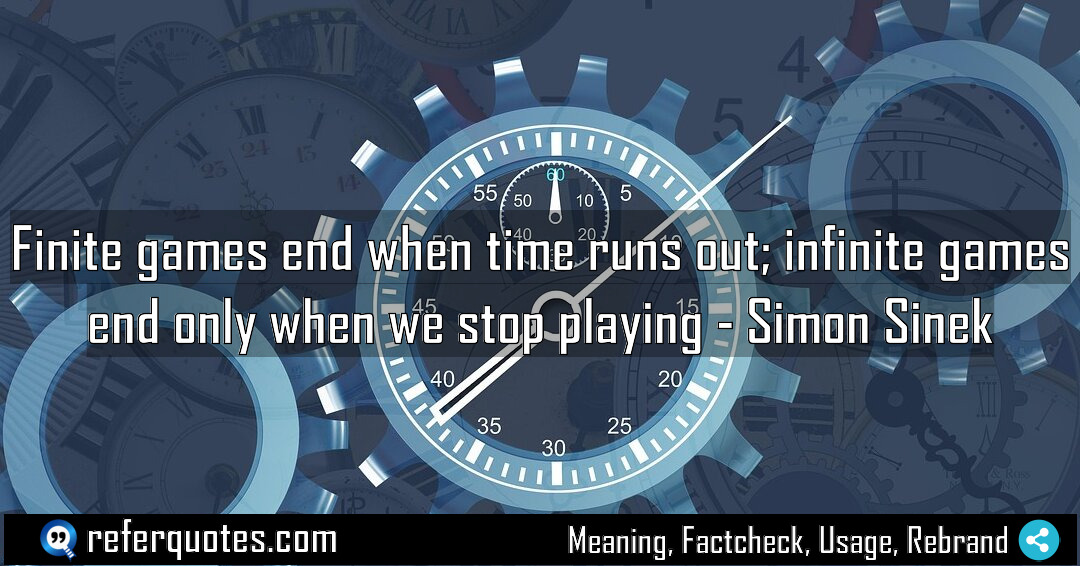Finite games end when time runs out, but Simon Sinek’s concept of the infinite game flips that entirely. It’s not about winning; it’s about staying in the game, about building something that outlasts you. The real shift happens when you stop seeing your competitors as rivals to be beaten and start seeing them as worthy opponents that make you better.
Share Image Quote:Table of Contents
Meaning
It’s the fundamental difference between playing to win a defined match and playing to keep playing forever.
Explanation
Okay, so let me break this down for you. A finite game is like a football match. There are known players, fixed rules, a clear objective (score more goals), and most importantly, a clock. When the whistle blows, the game is over and there’s a winner and a loser. That’s how most businesses operate—focused on this quarter’s earnings, beating a specific competitor, hitting a yearly target. It’s a sprint.
But an infinite game? That’s a whole different mindset. There are known and unknown players. The rules can change. And there is no defined endpoint. The entire purpose is not to win, but to keep playing, to perpetuate the game itself. You see this in companies that are built to last for centuries, in leaders who focus on building a resilient culture rather than just a profitable one. They make moves that might not pay off for a decade, because they’re playing the long, long game. The game only ends when you get tired, run out of resources, or lose the will to continue. That’s the real failure.
Quote Summary
| Context | Attributes |
|---|---|
| Original Language | English (3668) |
| Category | Life (320) |
| Topics | perseverance (25), purpose (186), time (59) |
| Literary Style | succinct (151), symbolic (8) |
| Emotion / Mood | inspiring (392) |
| Overall Quote Score | 85 (305) |
Origin & Factcheck
This idea comes directly from Simon Sinek’s 2019 book, The Infinite Game. It’s crucial to know that Sinek himself credits the original framework to philosopher James P. Carse and his 1986 book, Finite and Infinite Games. Sinek’s genius was in applying this profound philosophical concept to the modern worlds of business and leadership.
Attribution Summary
| Context | Attributes |
|---|---|
| Author | Simon Sinek (207) |
| Source Type | Book (4032) |
| Source/Book Name | The Infinite Game (60) |
| Origin Timeperiod | 21st Century (1892) |
| Original Language | English (3668) |
| Authenticity | Verified (4032) |
Author Bio
Simon Sinek champions a leadership philosophy rooted in purpose, trust, and service. He started in advertising, then founded Sinek Partners and gained global attention with his TED Talk on the Golden Circle. He advises companies and the military, writes bestselling books, and hosts the podcast “A Bit of Optimism.” The Simon Sinek book list features Start With Why, Leaders Eat Last, Together Is Better, Find Your Why, and The Infinite Game. He speaks worldwide about building strong cultures, empowering people, and leading for the long term.
| Official Website | Facebook | X| Instagram | YouTube
Where is this quotation located?
| Quotation | Finite games end when time runs out; infinite games end only when we stop playing |
| Book Details | Publication Year/Date: 2019; ISBN/Unique Identifier: 9780735213500; Last edition: Penguin Random House 2019; Number of pages: 272 |
| Where is it? | Chapter 1: Finite and Infinite Games, Approximate page from 2019 edition |
